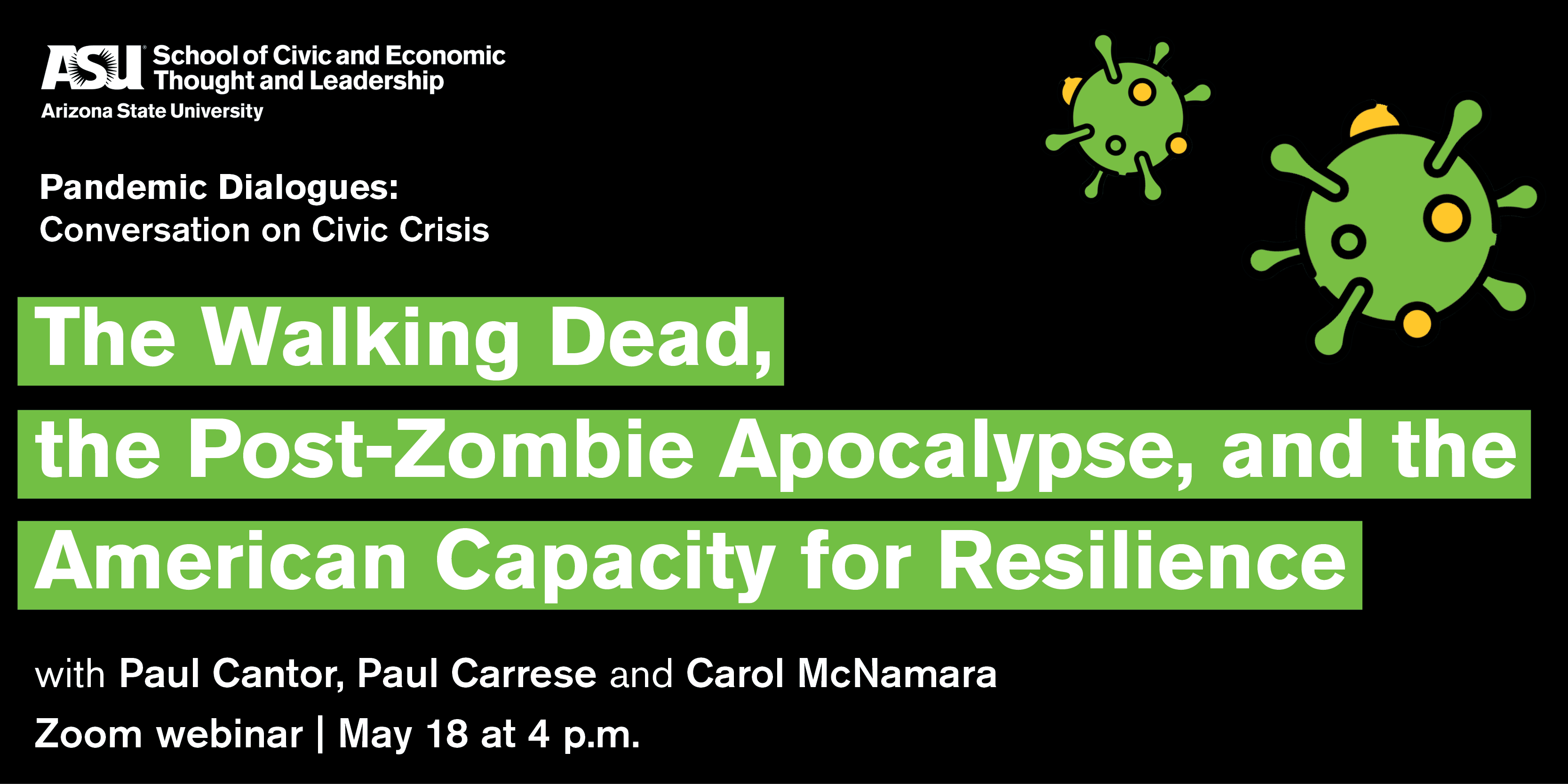The Walking Dead, the Post-Zombie Apocalypse and the American Capacity for Resilience Webinar

Pandemic Dialogues is a new virtual series providing perspective on the current civic crisis through conversations among the school’s faculty and students, academic guests and a wider community. Once the school’s regular speaker events had to be postponed, we sought to sustain the intellectual community we’ve built with students, ASU colleagues and the community.
Paul A. Cantor is Clifton Waller Barrett Professor of English at the University of Virginia. He has also taught at Harvard University in both the English and the Government departments. From 1992 to 1999 he served on the National Council on the Humanities. He has published widely on popular culture. His book Gilligan Unbound: Pop Culture in the Age of Globalization was named by the LA Times one of the best non-fictions books of 2001. His most recent books on the subject are The Invisible Hand in Popular Culture: Liberty vs. Authority in American Film and TV and Pop Culture and the Dark Side of the American Dream: Con Men, Gangsters, Drug Lords, and Zombies.
Paul Carrese is the founding director of the School of Civic and Economic Thought and Leadership at Arizona State University. For nearly two decades he was a professor of political science at the United States Air Force Academy. He is author of "The Cloaking of Power: Montesquieu, Blackstone, and the Rise of Judicial Activism," and co-editor of three other books – on George Washington, constitutionalism, and American grand strategy. His most recent book is "Democracy in Moderation: Montesquieu, Tocqueville, and Sustainable Liberalism." He studied at Oxford University on a Rhodes Scholarship and has held fellowships at Harvard University; the University of Delhi (as a Fulbright fellow); and the James Madison Program, Politics Department, Princeton University.
Carol McNamara is the associate director for public programs for the School of Civic and Economic Thought and Leadership at Arizona State University. Prior to that, she worked as the founding director with Olene Walker, a former governor of Utah, to build the Olene Walker Institute of Politics & Public Service at Weber State University in Utah. Her research and teaching focuses on politics and literature and ancient political thought. Her publications include articles on the thought of Tom Wolfe, Shakespeare's politics, Xenophon's Socrates, and civic education, as well as an edited volume on "The Obama Presidency in the Constitutional Order."